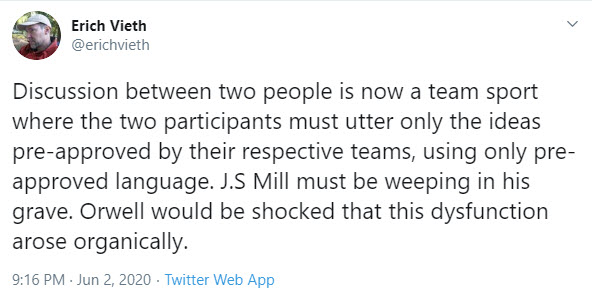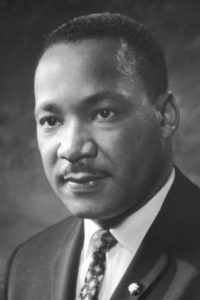How the Lack of Money and Power Corrupt the Message of People Trying to Protest the Murder of George Floyd
Here’s how I would explain the violent George Floyd protests to a Martian anthropologist.
The U.S. Constitution gives a theoretical “right” to free speech but not a real-life ability to speak powerfully or widely. Whereas money and power give rich people many ways to blast out their messages, ordinary Americans wanting to get out their messages often get eaten in the public square by street vultures. Consider these two examples.
When Donald Trump wants to make an announcement, he commands dozens of types of federal military and police organizations. This allows Trump to calmly walk up to a podium or stroll down the street in order to tell Americans what a smart man he is, or how religious or healthy or whatever. While he stands up there flatulating these lies, no one interrupts Trump because he controls a massively expensive and well-armed system of law enforcement officers and they extend their perimeter so widely that unfriendly others can’t get close. If any protestors try to get close enough to interrupt Trump’s bombastic bullshit, Trump’s police officers and soldiers throw their asses into jail.
Compare this to the George Floyd protests, where many thousands of ordinary Americans took to the streets, but they were then on their own. Ordinary Americans don’t control law enforcement. They cannot control their perimeters in order to safely deliver their message without interruption. As we’ve seen over and over, as soon as the heartfelt protestors get started delivering their messages in the public square, the area becomes an undefended magnet for uninvited masses of miscreants: anarchists, vandals, arsonists, inciters of violence and many others who clearly don’t give a shit about George Floyd. Virtually every time ordinary people gather together by the hundreds or thousands, their message gets corrupted because ordinary Americans do not have the money or power to hire hundreds of law enforcement officers to control their perimeter. Their message gets diluted by broken glass, thrown bricks and burning businesses, as well as horrible injuries, shattered dreams and gruesome deaths. Following this widespread mayhem, the heartfelt protestors get blamed for something they never planned or intended. The many people who simply wanted to bring attention to George’s Floyd’s murder are accused of intentionally destroying America’s central cities. The photos appearing in the mass media are Exhibits A-Z.
That’s how it almost always ends for those without great amounts of money and power. That is how it is in this Land where everyone only has the right to pointlessly yell out their grievances in their own living room or from their front porch. This is the Land where people of modest means can no longer assemble in peace to deliver stinging rebukes to corrupt politicians because they do not have the money or power to control and deliver a message in the public square, no matter how important that message is.


